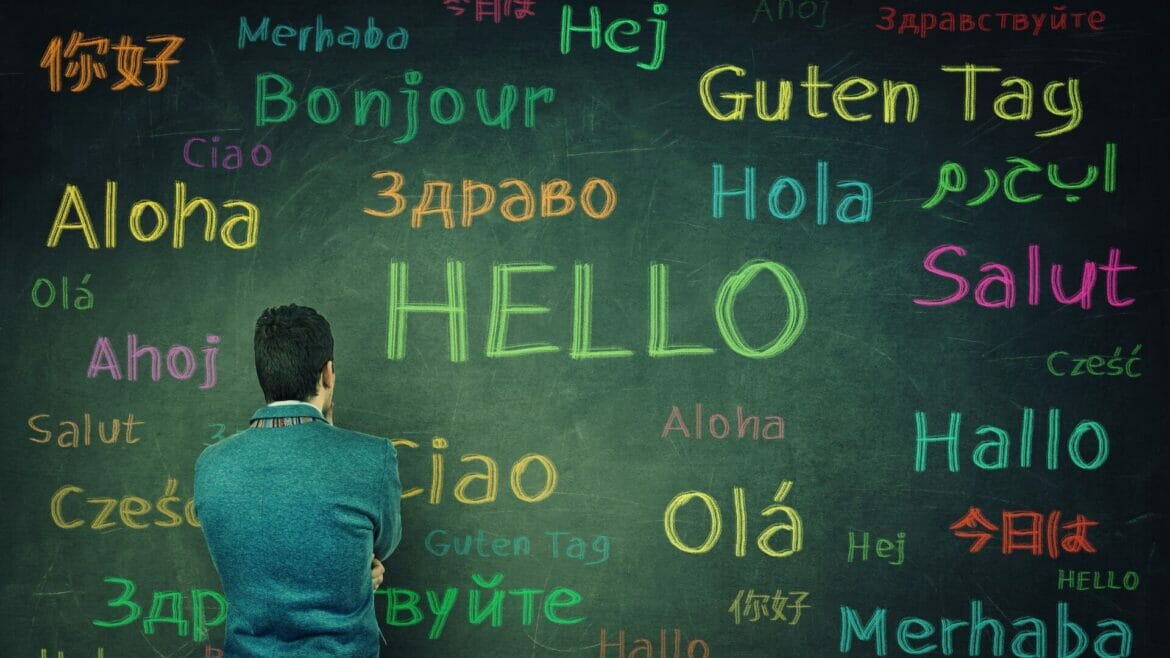Learning a new language is not only a useful skill to have in today’s globalized world, but it also has numerous cognitive benefits. Research has shown that the process of learning and using a new language can have a positive impact on brain function and can even delay the onset of age-related cognitive decline. This article will explore how learning a new language can benefit the brain and discuss some tips and resources to help you start your language-learning journey. So, if you’re thinking about learning a new language, read on to discover how it can benefit your brain and overall cognitive health.
Why is learning a new language good for your brain?
Learning a new language is a rewarding and challenging experience that benefits both your personal and professional life. It enables communication with diverse communities, opens doors to new cultures, and provides opportunities to travel. In addition, learning a new language is also great for your brain.

1. Improves brain plasticity
Language learning stimulates the brain, challenging it to learn new patterns, words, and grammatical structures. Therefore, the process effectively rewires your brain, increasing its plasticity and making it more adaptable to new situations. This cognitive flexibility can help enhance your problem-solving skills, creativity, and decision-making abilities.
2. Enhances cognitive functions
Studies show that bilinguals have better cognitive control than monolinguals, including enhanced executive function and working memory. Bilingualism can also delay age-related cognitive decline, potentially preserving mental abilities for longer.
Furthermore, learning a new language is also linked to improved memory retention. This is because when you learn a new language, you are constantly processing information, strengthening the connections in your brain, and enhancing your memory recall abilities.
3. Learning new cultures boosts creativity
One of the most significant benefits of learning a new language is that it increases cultural awareness and empathy. It helps you understand different perspectives and worldviews, breaking down language barriers and enabling cross-cultural communication and understanding.
In addition, you get to learn the language’s literature, which enables access to great knowledge about customs, traditions, and ways of life. This exposure to different cultures leads to a greater appreciation and understanding of diversity, making you more open-minded and accepting of other cultures. Furthermore, your creativity improves multifold rewarding cognitive functions of the brain.
4. Boosts self-confidence and self-esteem
Learning a new language can also boost your confidence and self-esteem. When you succeed in communicating with people in a new language, it gives you a sense of accomplishment and pride. This newfound confidence can translate into other areas of your life, increasing your self-assurance in new situations and making you more assertive. Additionally, being multilingual opens up new career opportunities and can increase your earning potential.
5. More fun
Finally, learning a new language is also fun and enjoyable. It provides a new way of expressing yourself and gives you a sense of fulfilment and satisfaction. Learning a new language not only improves your cognitive abilities but also allows you to indulge in a new form of self-expression and creativity. Learning a new language is rewarding, and the result is a sense of achievement and personal growth.
This web story summarises the benefits your brain gets from learning a new language.
Web Story: Learning A New Language Is Good For The Brain – Why?
Tips to succeed in learning a new language
So, would you love to learn a new language and want to start? Here are some tips to enjoy and complete the process.
- Set realistic goals: Start by setting achievable goals, such as learning a set number of vocabulary words each day or completing a certain number of lessons per week. This will help keep you focused and motivated.
- Find a good learning resource: Many resources are available for learning a new language, such as textbooks, online courses, apps, and language exchange programs. Find one that works for your learning style and stick to it.
- Practice regularly: Consistency is key when learning a new language. Make time each day to practice, even if it’s just for a few minutes. This will help you to develop good habits and make steady progress.
- Immerse yourself in the language: Try to engage with the language as much as possible. Listen to music or podcasts in the language, watch movies or television shows with subtitles, or find a friend to practice speaking with.
- Don’t be wary of making mistakes: Learning a new language is a process, and mistakes are natural. Feel free to try speaking the language, even if you make mistakes. This is how you will learn and improve.
- Have fun!: Learning a new language can be challenging, but it should also be enjoyable. Find ways to make the process fun, such as by listening to music or watching movies in the language or by setting up language games with friends. Enjoying the process will help you to stay motivated and make faster progress.
Recommended Reads:
- Cognitive Behavioural Therapy Immensely Improves Quality Of Life In Patients With Long-term Ailments
- 3 Wonderful Herbs To Fight Fatigue And Boost Energy Naturally
Some fun before you go 🙂 Here are a few celebrities who are multilingual and ageing gracefully!
To conclude,
Learning a new language is an excellent way to improve brain health and cognitive function. Numerous studies have shown that language learning can increase brain volume, enhance memory, and improve problem-solving skills. Additionally, being bilingual or multilingual can also provide various social and cultural benefits, such as greater intercultural understanding and communication skills. With the availability of language-learning resources, it has never been easier to learn a new language and reap the benefits it offers for the brain and overall well-being. So, if you’re considering taking up a new language, go for it! Your brain will thank you.
Images: canva.com
